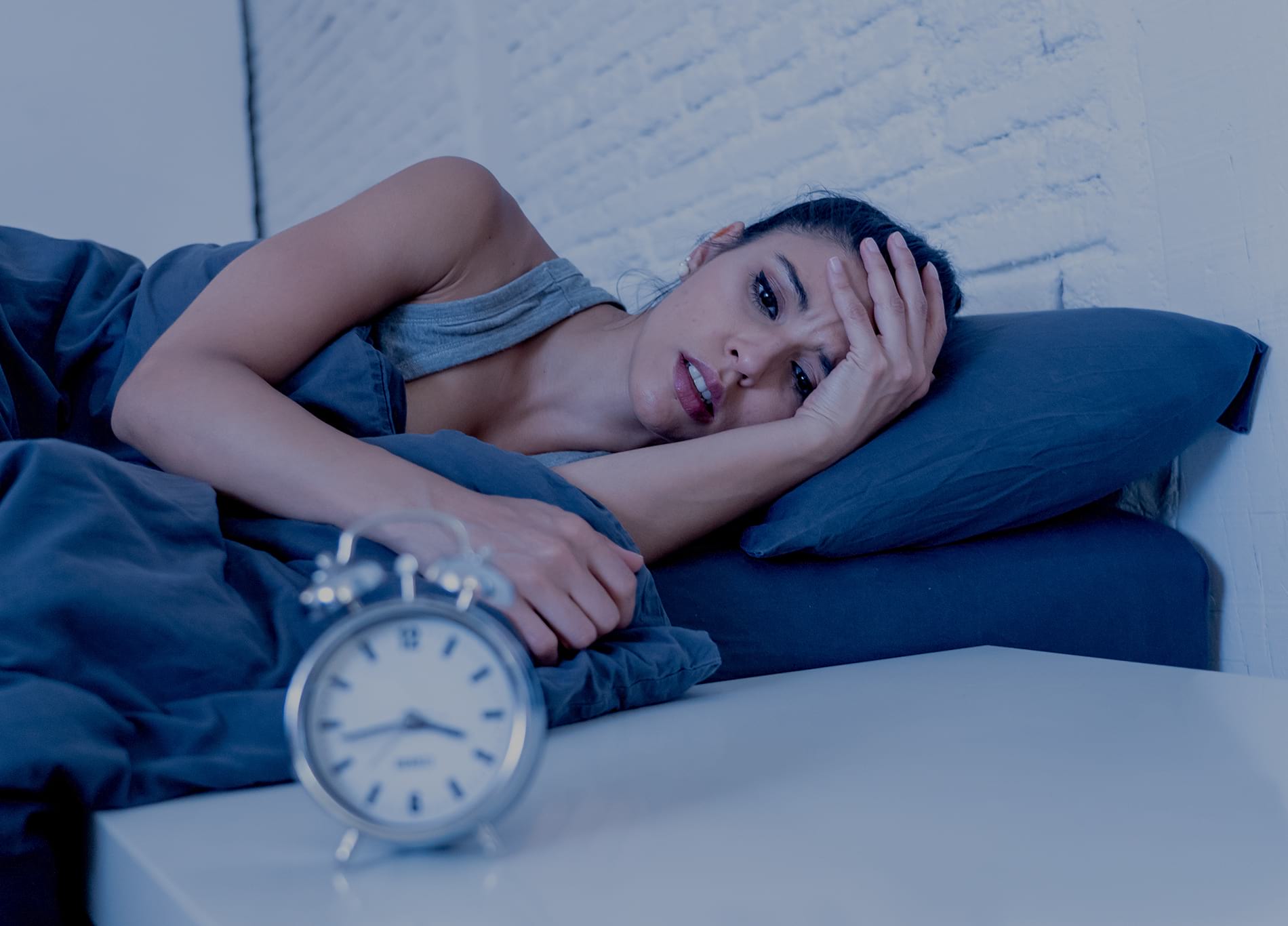Treatments for Sleep Problems
Treatments for Sleep Problems
Do you have problems falling asleep or staying asleep? Do you never feel fully rested? When is the last time you had 7 hours of restorative sleep? Read below for some valuable treatments for sleep problems.
Sleep issues are a major problem in our society today. They are the result of the fast-paced stressful lives that can lead to sleep problems. This is especially true if you have had some form of brain injury, such as a concussion, stroke, MS or Parkinson Disease.
Sleep Problems and Concussions
There are four types of sleep disturbances that can follow a concussion: Insomnia, Hypersomnia, Circadian Rhythm Disturbance and Parasomnias
Insomnia
Insomnia is the inability to fall asleep or stay asleep. It is the most common sleep problem among the world’s population. Insomnia often occurs immediately following a concussion and if not treated, may continue for years.
Hypersomnia
Hypersomnia is the inability to become fully awake or the need for excessive sleep. This is a very common symptom after a concussion, after Dr. Diane’s own concussion, she would sometimes sleep for 19 hours a day.
Sleep/Wake Cycle Disturbance
A Sleep/Wake Cycle Disturbance is an interference with one’s inner clock that regulates periods of sleep and wakefulness. This condition may exist before a concussion, but it can be worsened by the injury, or caused by the injury itself.
Parasomnias
Finally, parasomnias are a type of motor problem that includes night terrors, nightmares, periodic leg kicking, or the twitching of restless leg syndrome.
Specific Treatments for Sleep Problems
There are many types of treatments that can help you get restorative sleep. These methods and approaches work to help with the symptoms and causes of sleep problems and insomnia.
At Dr. Diane® Brain Health, we use conventional, complementary and alternative treatments. Some conventional treatments are reimbursed by or paid for by insurance. Complementary treatments may or may not be paid by insurance and alternative approaches are NOT covered by insurance. Unfortunately, we can’t decide what is and isn’t covered by insurance.
Conventional Treatments
There are two conventional medical categories for the treatment of sleep disturbances. The first is behavioral and/or environmental intervention, the second is pharmacological.
Behavioral
- Chronotherapy or a set time for sleeping and waking. Going to bed and waking up at the same time each day helps regulate sleep
- Reducing caffeine and alcohol use
- Cutting down on or ending tobacco use
- Eating a higher protein diet while reducing sugar, artificial sweeteners, and processed foods
- Environmental controls such as turning off lights and lowering background noises
- Limited time in bed by not watching TV in the bedroom
- Napping, or not napping. Recent research shows that a 90-minute nap during the day can help you sleep at night. It is recommended that you discuss this with your doctor
- A proper bed, pillow, and mattress to aid in sleep
- Phototherapy, or careful use of and exposure to light
- Psychotherapy, specifically Cognitive Behavioral Therapy (CBT) to learn new approaches to sleeping, daily living and/or Trauma Therapy to minimize the effect of PTSD
- Regular exercise; however, do not work out within four hours of your bedtime
Pharmacological
- Melatonin: taken at bedtime can help improve sleep
- ABA: a neurotransmitter that aids sleep
- Desyrel and other low-dose antidepressants can help sleeping problems, though their side effects can worsen symptoms such as daytime fatigue and memory issues
- Ambien, Sonata, and Lunesta are used to treat insomnia
- Aricept, Reminyl, and Exelon and wake-promoting agents that increase alertness while increasing verbal and visual memory
Complementary Treatments
Acupuncture and SCENAR are very helpful in correcting many aspects of sleep problems along with changes in your diet. On our team of experts, we have several specialists in sleep problems including Martha Lindsay, our nutritional educator, Tom Tam and Bill Mogan who specialized in acupuncture.
Neurofeedback is an excellent approach, though the drawback is that many insurance companies do not cover it. In addition, it can take over thirty sessions over the course of several years to complete the treatment. Dr. Diane® and Paul Soper specialize in this area.
An affordable method is cranial electro stimulation (CES), which is a FDA-approved medical device for insomnia. The blinking glasses of pRoshi help the brain to regulate itself. Quantum Wave Light therapy has a specific setting for sleep, while the Q1000 can be used with acupuncture to improve sleep.
Oxygen therapy has been found to be helpful, though it is different from the CPAP or APAP methods used to manage sleep apnea.
Alternative Treatments
Reiki and QiGong are good ways to treat sleep problems. Bach Flower Rescue Remedy Sleep may also help. A Bach Flower practitioner looks at whether other remedies, such as Star of Bethlehem, are best for you. Clara Diebold is our team Reiki expert, while Dr. Diane® has been trained in both and is a Bach Flower Practitioner.
Aromatherapy
Aromatherapy with essential oils is often used to promote sleep, such as lavender and chamomile. In addition, there are many homeopathic and herbal remedies such as valerian root. Please consult with a naturopath or homeopathic practitioner, with a background in working with mTBI patients, before using any these products.
Please Keep in Mind
Each sleep problem is unique to each person, whether caused by and injury or not. Over-the-counter sleep products are designed for the general population and not as remedies for specific physical conditions. Before buying an over-the-counter product, please talk with your doctor. An experienced professional can give you the best information about remedies suited to your symptoms.



